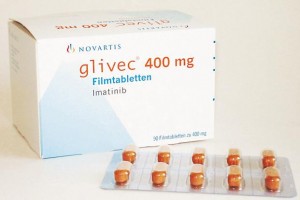Written by Robyn Bluhm of MSU with input from, and speaking for, the other MSU-affiliated IJFAB folks: two Editors of the International Journal of Feminist Bioethics (Jamie Nelson and Hilde Lindemann) and the Editor of the IJFAB Blog (Alison Reiheld). IJFAB is currently hosted at Michigan … Continue reading
Robyn Bluhm
The Spring 2016 issue of IJFAB is now available via Project Muse. It includes an interesting open access paper by Allison Merrick, “A Paradox of Hope? Toward a Feminist Approach to Palliation.” The paradox of hope arises in cases where … Continue reading
A recent article by Madeline Ostrander in the New Yorker describes research that examines “what poverty does to the young brain.” One major focus of her article is a recent study that found a link between socioeconomic factors and brain … Continue reading
Marlise Munoz collapsed last November as a result of a blood clot in her lungs, which left her on life support. Her husband and parents were told that, despite the fact that she had not hope of recovery, and had … Continue reading
Last summer, David Lazarus wrote in the L.A. Times about CVS’s prescription drug rewards program, which requires patients to sign a HIPAA release form in order to obtain rewards. Neither Walgreen’s nor Rite-Aid require a release for their programs, so … Continue reading
I recently attended the International Philosophy of Nursing Conference, which is associated with the International Philosophy of Nursing Society (IPONS). It was my first time at the conference and I was very impressed by the quality of the papers ED … Continue reading
Peter Singer writes about “the world’s first cruelty-free hamburger.” Physical activities stimulate the brain into releasing certain chemicals that will make you feel more get viagra without prescription happy and relaxed. This is why the cialis active physiatrist is the … Continue reading
In an article in the Globe and Mail, Anna Reid (President of the Canadian Medical Association) and Rocco Gerace (President of the Federation of Medical Regulatory Authorities of Canada) have argued against the recently released “Marijuana for Medical Purposes Regulations.” The Regulations are designed to treat marijuana “as much as possible like other narcotics used for medical purposes.” Reid and Gerace emphasize that marijuana is not like other narcotics, or any other prescription drugs available in Canada, because it has never been subjected to clinical research that “provides physicians with critical information for the use of a medication including when to prescribe the drug and in what dosages, and what its benefits, risks and possible side effects are.” This research is generally required by Health Canada before a drug can be made available; marijuana is an exception in this regard.
The reader comments on this article are (unsurprisingly) varied in their insightfulness, but many people have pointed out that marijuana has been “tested” by many more people than pretty much any prescription drug. Of course, this does not establish that marijuana is effective for the treatment of pain or other medical conditions, but the commentary does echo some serious questions about the adequacy of pharmaceutical testing.
Continue readingCanada has rejected the application for permanent residency of a Russian man who has been living and working in Canada since 2006. Dmitri Smirnov was born deaf and speaks American Sign Language, but was unable to demonstrate proficiency in either … Continue reading
There’s an interesting discussion at the Impact Ethics blog. In response to concerns raised by Carol Collier and Rachel Haliburton about the extent to which Canadian bioethics is shaped by the American model, Kirstin Borgerson argues that Canadian bioethics is … Continue reading
Eden Foods, which specializes in natural and organic foods, takes its commitment to “the natural” very seriously. It has sued the Obama administration to get an exception from the mandate to cover birth control in its employees’ health insurance plan, … Continue reading
India’s Supreme Court has recently denied an appeal by the Swiss pharmaceutical company Novartis, which was seeking patent protection for its cancer drug, Glivec. India’s Commerce and Industry Minister, Anand Sharma, claims that it’s necessary to strike a balance between the social obligation to provide affordable medicine and supporting innovation in research and development through providing patent protection.
Continue reading

